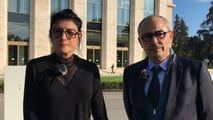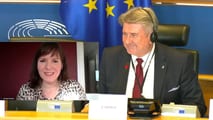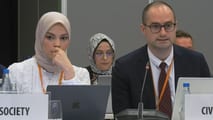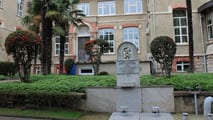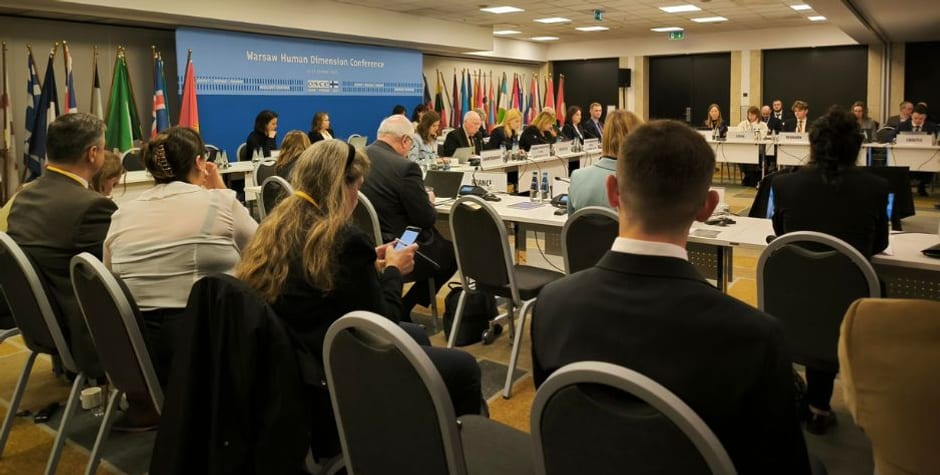
On October 16, 2025, the ECLJ participated to the OSCE, Warsaw Human Dimension Conference. Our Advocacy Officier Thibault van den Bossche delivered an oral statement to denounce the doings of Turkey against Christians. Here is what he said and asked:
Mister Moderator,
My name is Thibault van den Bossche, and I represent the European Centre for Law and Justice.
Christians in Turkey, of all denominations, live in a hostile climate. Political, media, and social narratives frequently portray Christians as foreign, suspect, or destabilizing—in short, as a threat to national security. Such rhetoric fuels direct violence, including attacks on churches and cemeteries, and intimidation of clergy and believers.
Protestants and Christian converts from Islam form an especially vulnerable and closely monitored group. They also suffer from entry bans on foreign Christians. Between 2019 and 2024, 132 foreign Christians were arbitrarily expelled, affecting a total of 303 persons, including spouses and children.
The denial of the Armenian Genocide continues to shape public discourse and adds stigma to ancient Christian communities. In the public education system, a religious identity aligned with Sunni Islam and Turkish nationalism is promoted, which leads to the marginalization of Christians, Alevis, and other non-Muslim groups.
In Turkey, many Christian communities still lack freedom of association and related rights, such as the legal ability to exist in law and to operate openly. For the Protestant community, the main challenge is places of worship. Lacking historic church buildings, most congregations rent or purchase ordinary premises; yet many are not officially recognized as churches and face pressure.
For traditional churches—especially Greek Orthodox and Armenian—the State systematically interferes in the operation of community foundations inherited from the Ottoman period. The right to property and the freedom to hold free elections for foundation boards have been restricted for decades, contrary to the requirements of legality, legitimate aim, and necessity in a democratic society. As a result, Christian foundations have been expropriated, micromanaged, or frozen, and, in effect, nationalized, even while they run schools and hospitals that serve the common good.
At the European Centre for Law and Justice, we advocate before European and international bodies. For example, we intervened in the Mavrakis case before the European Court of Human Rights, to defend two priests who were removed from foundation boards simply because they are clergy.
We therefore urge Turkey to:
- Recognize the legal personality of Christian communities and associations;
- Protect their property rights;
- Guarantee free, regular elections for Christian-foundation boards; and
- Fully implement the judgments of the European Court of Human Rights.
Thank you.


